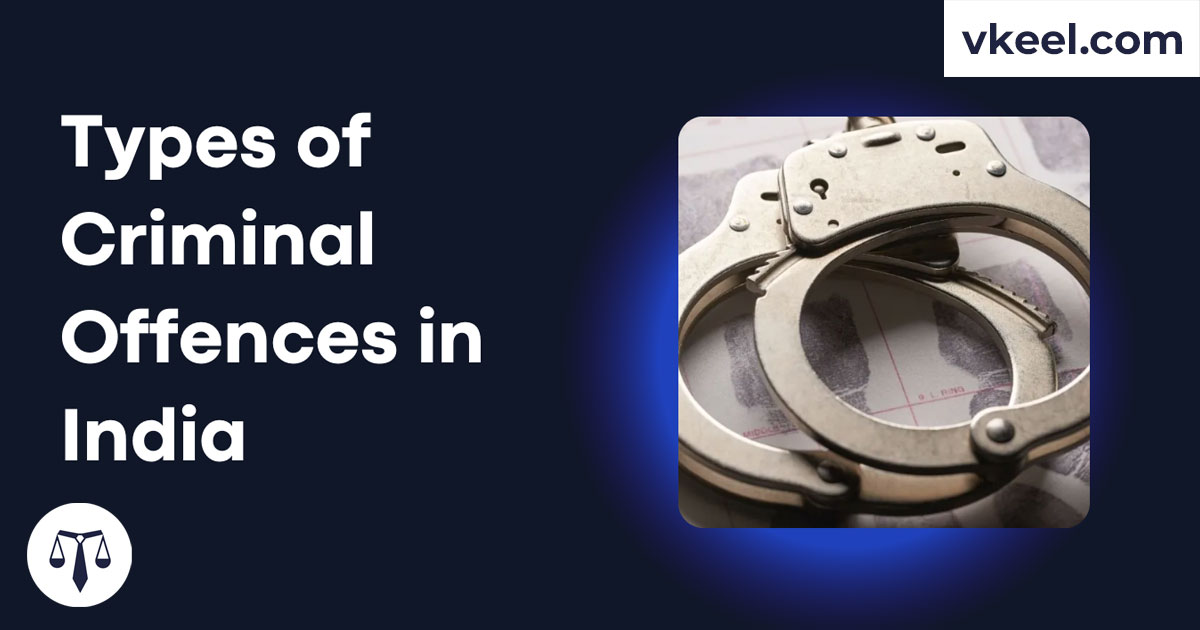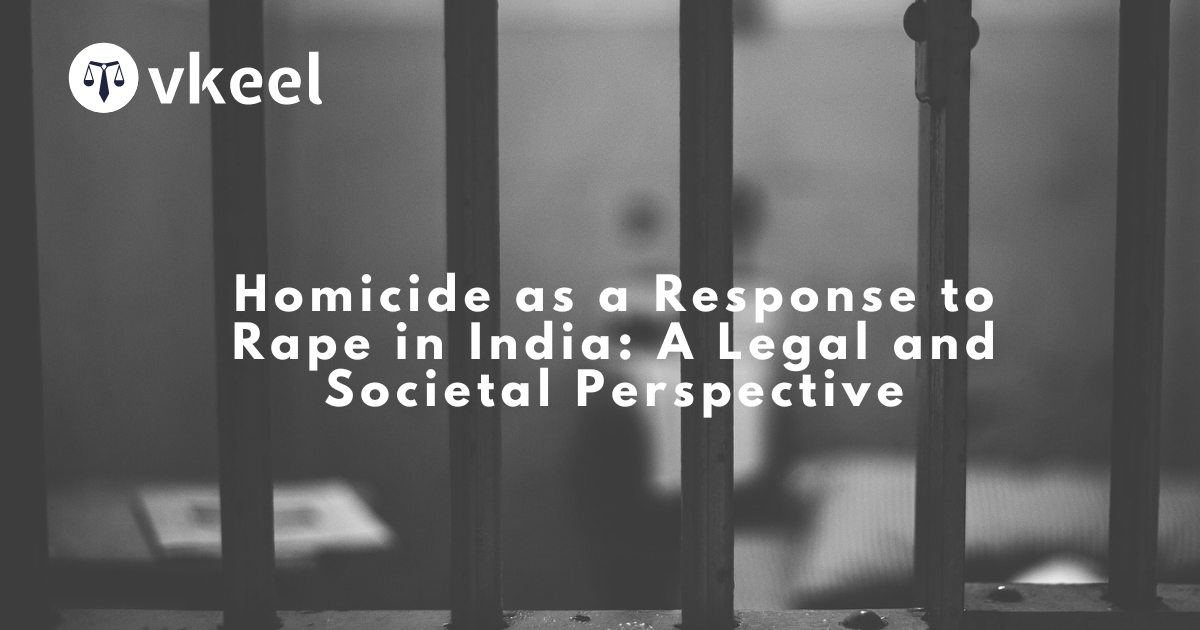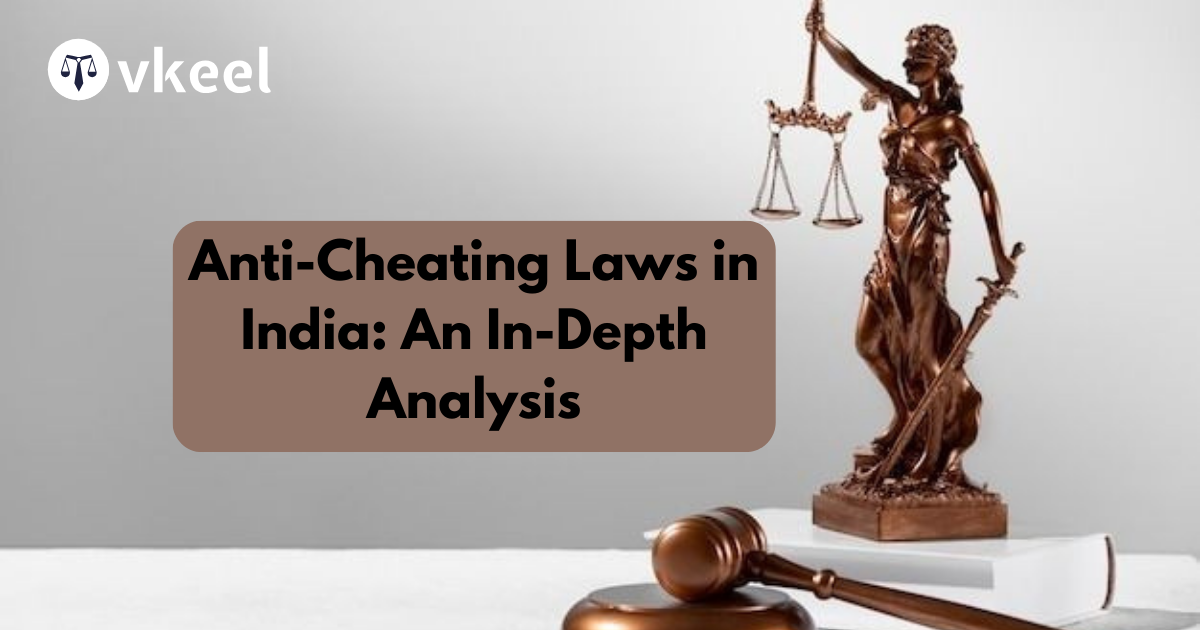Types of Criminal Offences in India
By Vkeel Team
Table of Contents
Introduction
Criminal offences are acts that are prohibited by law and punishable by the state. They are considered to be serious violations of the law and can result in severe penalties, including imprisonment, fines, and other forms of punishment. Criminal offences can range from minor misdemeanours to major felonies, and the severity of the punishment depends on the nature of the offence. In this article, we will discuss the different types of criminal offences, the penalties associated with them, and how to protect yourself from becoming a victim of a criminal offence.
What is a Criminal Offence?
A criminal offence is an act that is prohibited by law and punishable by the state. It is an act that is considered to be so serious that it is punishable by imprisonment, a fine, or both. Criminal offences can range from minor misdemeanours to serious felonies. Examples of criminal offences include murder, assault, theft, fraud, and drug possession.
Criminal offences are classified according to their severity. Minor offences are known as misdemeanours and are punishable by a fine or a short period of imprisonment. More serious offences are known as felonies and are punishable by a longer period of imprisonment or even the death penalty in some cases.
In most countries, criminal offences are prosecuted by the state. This means that the state will bring a case against the accused in a court of law. The accused will then be given the opportunity to defend themselves against the charges. If the accused is found guilty, they will be sentenced according to the severity of the offence.
Criminal offences are taken very seriously by the state and those found guilty of committing them can face serious consequences. It is important to understand the laws of your country and to abide by them in order to avoid being charged with a criminal offence.
Types of criminal offenses under the Code of Criminal Procedure
The Code of Criminal Procedure (CrPC) is the primary legislation governing criminal procedure in India. It outlines the procedure for investigation, arrest, trial, and appeal of criminal offenses. The following are some of the types of criminal offenses under the CrPC:
Cognizable Offence?
A cognizable offence is an offence for which a police officer has the authority to make an arrest without a warrant. These offences are usually more serious in nature and carry a greater penalty. Examples of cognizable offences include murder, rape, robbery, kidnapping, and certain drug-related offences. In India, cognizable offences are listed in the Code of Criminal Procedure (CrPC).
Under the CrPC, a police officer can arrest a person without a warrant if they have reasonable grounds to believe that the person has committed a cognizable offence. The police officer must then inform the accused of the offence they are being charged with and the grounds for the arrest. The accused must then be presented before a magistrate within 24 hours of the arrest.
Cognizable offences are taken very seriously by the Indian legal system and are punishable by imprisonment, fines, or both. The punishment for a cognizable offence depends on the severity of the offence and the circumstances surrounding it.
Non-cognizable Offence?
A non-cognizable offence is an offence in which a police officer has no authority to make an arrest without a warrant. These offences are less serious in nature and are usually punishable by a fine or a short jail sentence. Examples of non-cognizable offences include petty theft, public nuisance, and minor assaults.
In India, the Code of Criminal Procedure (CrPC) defines a non-cognizable offence as one in which a police officer has no authority to arrest without a warrant. The police can, however, investigate the matter and take necessary steps to prevent the commission of such an offence.
Non-cognizable offences are usually tried in a magistrate’s court. The accused is not entitled to bail and must appear before the court on the date specified. The punishment for a non-cognizable offence is usually a fine or a short jail sentence.
Non-cognizable offences are considered less serious than cognizable offences, which are punishable by imprisonment of more than three years. Cognizable offences include murder, rape, robbery, and other serious crimes.
Bailable offenses?
A bailable offense is a criminal offense for which a defendant may be released from custody upon posting bail. Bail is a form of security, usually in the form of money, that is deposited with the court to guarantee the defendant’s appearance in court. Bailable offenses are typically less serious offenses, such as minor traffic violations, disorderly conduct, or petty theft. In some cases, more serious offenses may be bailable if the court determines that the defendant is not a flight risk or a danger to the community.
Non-bailable offenses?
Non-bailable offenses are criminal offenses for which bail is not available as a matter of right. These offenses are considered to be more serious than bailable offenses and are usually punishable by imprisonment for a period of more than three years. Examples of non-bailable offenses include murder, rape, kidnapping, and treason. In cases of non-bailable offenses, the accused must be produced before a magistrate within 24 hours of arrest. The magistrate then decides whether to grant bail or not, depending on the severity of the offense and the likelihood of the accused fleeing or tampering with evidence.
Compoundable offenses?
Compoundable offenses are criminal offenses that can be settled out of court with the consent of both the accused and the complainant. These offenses are usually minor in nature and do not involve serious harm to the victim. In such cases, the accused may be willing to pay a certain amount of money to the complainant in order to settle the case without going to trial. This is known as a “compounding” of the offense. Compounding is a way of resolving a criminal case without the need for a trial, and it is often seen as a more efficient and cost-effective way of dealing with minor offenses.
Non-compoundable offenses?
Non-compoundable offenses are criminal offenses that cannot be settled out of court. These offenses are considered to be more serious than compoundable offenses and are usually punishable by imprisonment or a fine. Examples of non-compoundable offenses include murder, rape, kidnapping, and robbery. In some cases, the court may also impose additional punishments such as community service or restitution. Non-compoundable offenses are usually tried in a court of law and the accused must be proven guilty beyond a reasonable doubt.
Types of Criminal Cases Based on Trial
Criminal cases can be divided into two main categories based on the type of trial: bench trials and jury trials.
A bench trial is a trial in which the judge alone decides the outcome of the case. In a bench trial, the judge hears the evidence presented by both sides and makes a decision based on the facts presented. The defendant does not have the right to a jury trial in a bench trial.
A jury trial is a trial in which a jury of twelve people decides the outcome of the case. In a jury trial, the jury hears the evidence presented by both sides and makes a decision based on the facts presented. The defendant has the right to a jury trial in a jury trial.
In both types of trials, the defendant has the right to be represented by an attorney. The defendant also has the right to present evidence and witnesses in their defense.
The decision of the judge or jury in a criminal case is binding and cannot be appealed. The only way to challenge the decision is to file a motion for a new trial.
No matter what type of trial is used, the defendant has the right to a fair and impartial trial. The judge or jury must consider all the evidence presented and make a decision based on the facts of the case.
Why should you Hire a Lawyer for a Criminal case?
Hiring a lawyer for a criminal case is an important decision that should not be taken lightly. A lawyer can provide invaluable assistance in navigating the complexities of the criminal justice system. A lawyer can provide legal advice and representation in court, as well as help to ensure that the accused’s rights are protected throughout the process.
A lawyer can help to ensure that the accused is aware of their rights and the charges they are facing. They can also provide advice on the best course of action to take, such as whether to plead guilty or not guilty. A lawyer can also help to negotiate a plea bargain or other resolution to the case, if appropriate.
A lawyer can also provide representation in court, ensuring that the accused’s rights are protected and that they receive a fair trial. They can also help to challenge evidence presented by the prosecution and cross-examine witnesses.
Finally, a lawyer can provide emotional support and guidance throughout the process. They can help to alleviate some of the stress and anxiety associated with a criminal case, and provide reassurance that the accused’s rights are being protected.
In summary, hiring a lawyer for a criminal case is an important decision that should not be taken lightly. A lawyer can provide invaluable assistance in navigating the complexities of the criminal justice system, ensuring that the accused’s rights are protected and that they receive a fair trial. They can also provide emotional support and guidance throughout the process.
Conclusion
In conclusion, criminal offences are serious matters that can have serious consequences. It is important to understand the laws and regulations that govern criminal offences and to take steps to ensure that one does not become a victim of a criminal offence. It is also important to be aware of the potential consequences of committing a criminal offence and to take steps to avoid such behaviour.
Disclaimer:
The information provided in the article is for general informational purposes only, and is not intended to constitute legal advice or to be relied upon as a substitute for legal advice. Furthermore, any information contained in the article is not guaranteed to be current, complete or accurate. If you require legal advice or representation, you should contact an attorney or law firm directly. We are not responsible for any damages resulting from any reliance on the content of this website.







